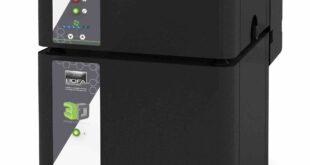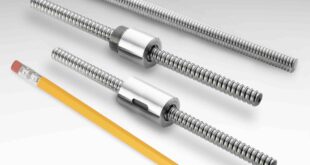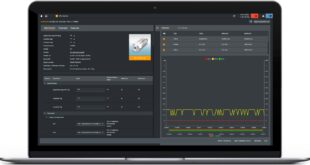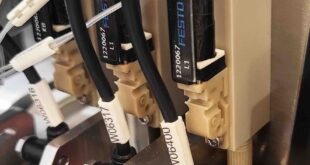George Walker explores how industrial business leaders can simplify the process of managing energy usage and improving sustainability
In 2015, government leaders from around the world reached the Paris Agreement, pledging to keep global temperature increases to below 2˚C. Achieving this goal requires a significant shift in energy globally, both in terms of generation and use in energy-intense markets such as the industrial sector.
According to PwC’s 23rd Annual Global CEO Survey, almost one-in-four (24%) of global CEOs surveyed in late 2019 were extremely concerned about climate change, marking a 25% increase compared with the year prior. This reflects the ongoing drive by industry, public and policy alike to reduce global carbon emissions and turn the tide on manmade climate change.
Even for CEOs and business leaders that are not personally concerned by the issue of climate change directly, sustainability remains a key focus. PwC’s survey also found that 25% of respondents saw commercial opportunities due to climate change initiatives.
Similarly, increasingly strict regulation and standards will make effective energy management, reduced power usage and more sustainable operations more financially appealing, particularly for the traditionally power-intense manufacturing sector.
In the UK, the industrial sector encompasses just shy of one-third of the country’s annual energy demand, with approximately 117,149 gigawatt hours needed to maintain operations each year.
Most manufacturers have started taking steps to reduce this energy demand by investing in energy efficient technologies and metering systems.
However, these technologies are only as useful as they are monitored and managed, which can be more difficult for larger industrial businesses.
Yet sustainable business practices do not stop at energy usage. Industrial plant managers aiming to improve operational sustainability will also need to consider factors such as water usage. This is more challenging, and therefore arguably more important, in process industries such as food manufacturing or chemical engineering.
Plant managers can, however, make sustainability more manageable by integrating it into industrial management systems alongside other key process performance data. In doing this, it not only becomes easier to visualise and monitor, but it also allows for a more comprehensive and practical strategy.
For example, a plant might have a fleet of 30 water meters and 100 smart energy meters. The data from these meters could be integrated into an industrial software platform to show plant managers clearly that usage is high. This might flag the issue, but it doesn’t offer much in the way of insights.
But if this data is viewed alongside the data from washdown schedules, pump pressure or motor speed, plant managers have a glimpse into the underlying issue. It could be that adjusting the pressure of a pump or the speed of several motors could positively affect resource use.
Across an entire production facility, there could be hundreds or thousands of minor adjustments that can reduce energy usage and support more sustainable operation. The bigger an industrial business is, the more difficult this may be to see all these opportunities for improvement.
That’s why at Novotek, we recommend larger industrial businesses consider operations management software that can present insights into collected data in different ways, including running calculations on field data that can scale it up to form a clear picture of everything from energy consumption to overall equipment effectiveness.
Improving sustainability as an industrial business is no easy task, and it’s one that differs substantially from one company to the next.
Although globally we have a general agreement that action is needed to minimise global temperature rises, there can be no consensus on what specific actions need to be taken to do this.
That’s why the best path forward is one where energy demand and resource consumption is managed closely by plant managers — and that’s a step most businesses can take.
George Walker is managing director of Novotek UK and Ireland.
 Engineer News Network The ultimate online news and information resource for today’s engineer
Engineer News Network The ultimate online news and information resource for today’s engineer





